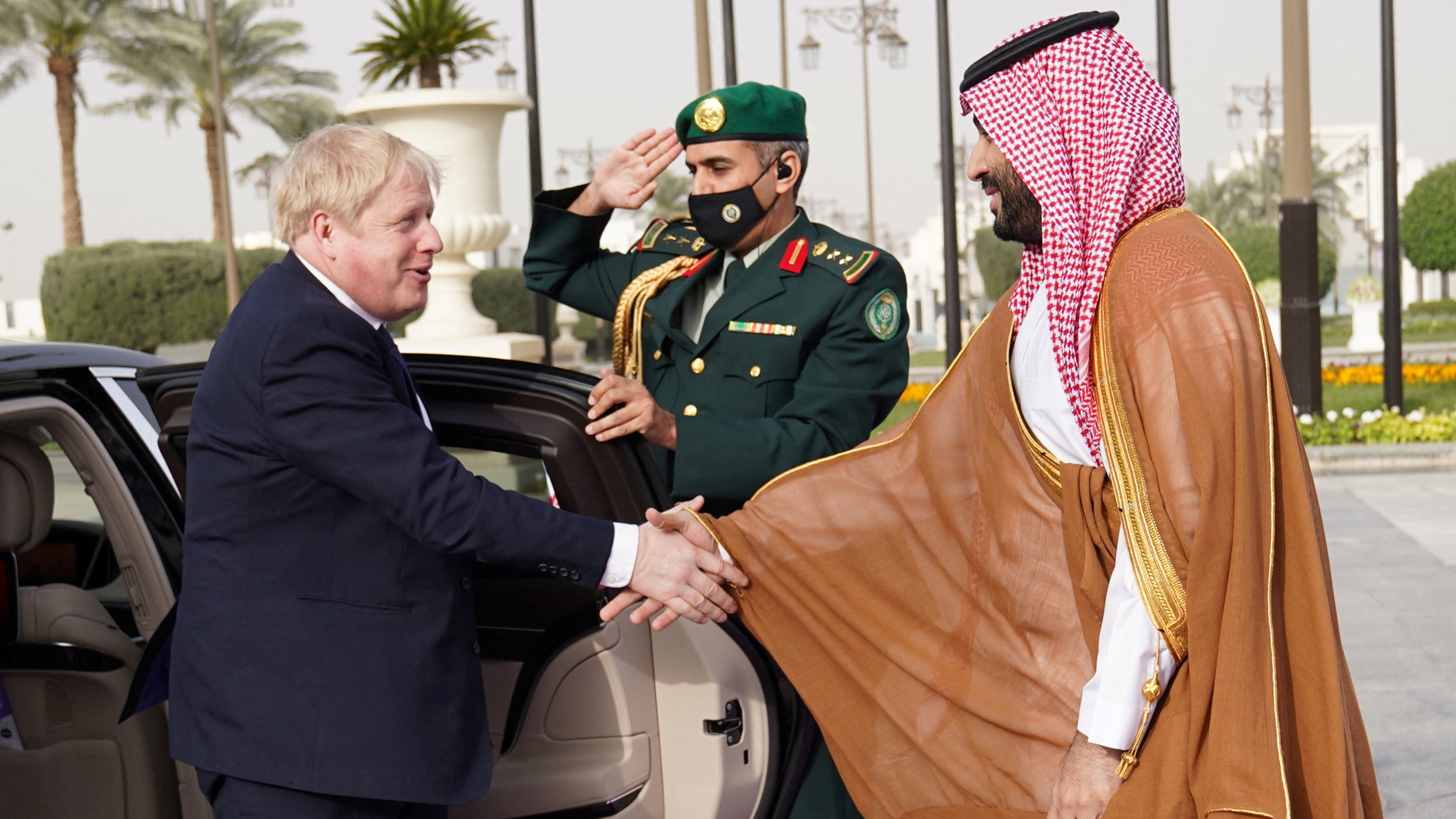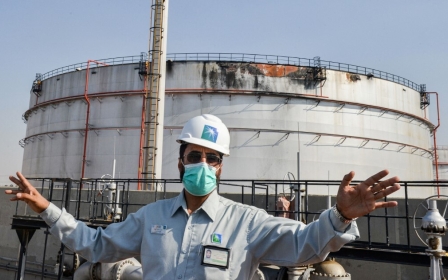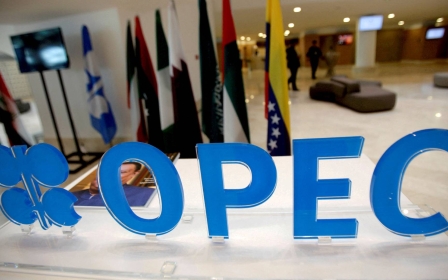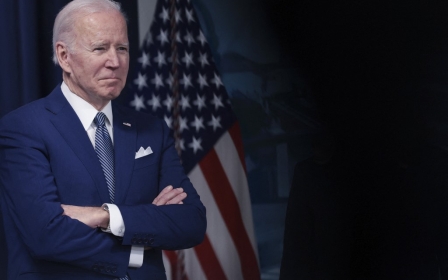Boris Johnson meets Saudi crown prince in Riyadh to lobby for more oil

British Prime Minister Boris Johnson met with Saudi Crown Prince Mohammed bin Salman on Wednesday as part of a whistlestop Gulf tour to lobby for higher oil production after Russia's invasion of Ukraine sent markets into turmoil.
Saudi Energy Minister Prince Abdulaziz bin Salman also attended the meeting in Riyadh, Saudi Press Agency said, adding that Saudi Arabia and the UK discussed the conflict in Ukraine and other regional and international issues.
Johnson, one of the few western leaders to visit Riyadh since the 2018 murder of Saudi journalist Jamal Khashoggi, touched down after talks with Abu Dhabi Crown Prince Mohammed bin Zayed in the United Arab Emirates, another oil-rich Gulf state.
The UK leader is attempting to rein in oil prices, which had soared to nearly $140 a barrel before dropping below $100, and help end the West's dependency on Russian oil following the invasion of Ukraine.
His visit coincides with fresh condemnation of Saudi Arabia's human rights record after 81 people were put to death in a mass execution on Saturday. Rights groups questioned whether they had received fair trials before the largest mass execution in the country's modern history.
Labour leader Keir Starmer criticised the visit. “Obviously there’s a real energy crisis in terms of the cost at the moment, so anything that brings the cost down now is a step in the right direction, whatever it is,” he said, “but going cap in hand from dictator to dictator is not an energy strategy.”
Hatice Cengiz, Khashoggi's fiancee, told the BBC that Johnson should not be "doing deals" with Mohammed bin Salman, known as MBS, unless he insisted "on the truth and justice for Jamal's murder".
Blackmail
Johnson met MBS, the de facto Saudi leader, after discussing "the stability of the global oil markets" with Mohammed bin Zayed, according to the UAE's official WAM news agency.
"The leaders welcomed the long-standing partnership between our two countries and discussed opportunities to increase collaboration between the UK and UAE on energy security, green technology, and trade," a Downing Street spokesperson said in London.
Before leaving for Riyadh, Johnson promised to raise human rights issues with Prince Mohammed, but also stressed Britain's "very important relationship" with the Gulf.
"It's not just a question of looking at the OPEC countries and what they can do to increase supply, though that is important," Johnson told British media.
"When we look at the dependency the West in particular has built up on Putin's hydrocarbons, on Putin's oil and gas, we can see what a mistake that was because he's been able to blackmail the West."
'Putin's addiction'
Johnson's spokesman said the prime minister would also ask the crown prince to condemn Russia's President Vladimir Putin over the assault on Ukraine.
Saudi Arabia and the UAE, which are two of the world's biggest oil exporters with ties to Moscow, have so far avoided taking a position against Russia.
Johnson said before leaving that the impact of Putin's "brutal and unprovoked" assault will be felt far beyond Europe.
He said that as western sanctions begin to bite, a new international coalition was needed to offset their impact on consumers already feeling the pinch from rising inflation.
"The world must wean itself off Russian hydrocarbons and starve Putin's addiction to oil and gas," he said in a statement.
"Saudi Arabia and the United Arab Emirates are key international partners in that effort."
The UAE and Saudi Arabia are the UK's two largest economic partners in the region, with bilateral trade worth £12.2bn ($15.9bn) and £10.4bn respectively in 2020, Johnson's office said.
Russia is the world's largest producer of gas and one of the biggest oil producers.
Like the United States, Britain plans to phase out Russian oil imports by the end of the year, as part of wide-ranging sanctions targeting Russian businesses and billionaires.
US President Joe Biden and Mohammed bin Salman haven't spoken since Biden took office and vowed to treat the kingdom as a "pariah" state over Khashoggi's killing, which the CIA blamed on the Saudi royal.
Torbjorn Soltvedt, Middle East and North Africa analyst at global risk consultants Verisk Maplecroft, told AFP that "without this rift, it is unlikely Johnson would now be spearheading oil diplomacy efforts in the Gulf".
He said the odds were "stacked against Johnson" being able to change Saudi oil policy, but that the UAE "may be more willing to open the taps" as it wants to capitalise on its oil reserves more quickly.
But the UAE on 10 March reaffirmed its commitment to the agreements made by OPEC+, an alliance of oil producing nations including Russia, to stick to existing output targets into April.
Middle East Eye delivers independent and unrivalled coverage and analysis of the Middle East, North Africa and beyond. To learn more about republishing this content and the associated fees, please fill out this form. More about MEE can be found here.






